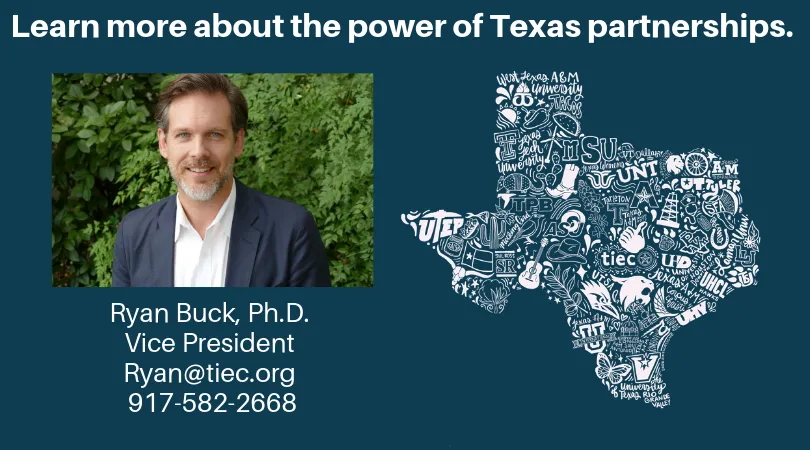
This article originally appear on Medium.com, click here for the link.
Conferences present an opportunity to engage future partners, partake in professional development, and stay informed on the pulse of your industry. When it comes to international education, simply attending conferences will not build your network, and neither will just reaching for your stack of business cards and folders of marketing collateral.
Educators, like everyone else, value real connections. Being present, intentional, and, most importantly, prepared, is vital when attending your next conference. Research shows that 85% of people say they build stronger, more meaningful business relationships during in-person conferences and meetings. This means showing up is only one step.
Later this month, NAFSA,the largest non-profit association dedicated to international education and exchange, hosts its annual conference that is “the most comprehensive international education event serving the diverse needs of the entire international community.” Over 10,000 attendees from 3,500 educational institutions and organizations spanning 100 countries will gather in Washington, D.C. for a week of development, connection, and commerce.
For the past 10 years, I have aspired to not only be an attendee but an active participant in NAFSA by continuing to discover and deepen connections with trusted partners and colleagues in a dynamic global network. NAFSA, as well as my experience in higher education, has taught me that conferences are marathons, not sprints. Much of it depends on how you prepare, condition, execute, and follow up that will truly build the lasting partnerships you promised your higher-ups when requesting the investment of the ticket, airfare, hotel, and time away from your office.
First, develop a plan. Conferences like NAFSA are a goldmine of potential. MOUs will be signed, programs enterprised, and partnerships forged. That doesn’t happen if you haven’t done the research of who will be there and what you want to get out of the experience. Visit attendees’ websites, LinkedIn pages, and, if the conference has one, check out the app while developing your participation plan. Always understand your expectations and your institution’s expectations by discussing the conference with colleagues and evaluating the myriad opportunities.
Set goals, and think through your engagement strategy. NAFSA is such a large space that you can easily get lost in the crowd. By asking yourself some basic questions as to who you want to talk to and what you want to get out of the experience, you’ll walk in ahead of the game. Articulate why you are there, and know how to best communicate your reasons to various individuals representing higher education, service providers, governments, and counterparts from around the world.
Reach out in advance of the conference, which is important when maximizing your time networking. Email or message identified potential partners with a succinct message, offer times to meet and chat about opportunities for partnership, and definitely never forget to follow up after you make plans to meet with someone. Reaching out and setting a schedule will make efficient use of time and may even allow you time to sit down and have a proper lunch with a prospective partner.
Focus on a few opportunities, as there are going to be more things you say no to than you say yes to, and that is okay. Since NAFSA is huge, there is no way you can attend every event and engage every person. My suggestion: do not even try. Trust me, I’ve tried to see it all at NAFSA and it ended in blistered feet, physical exhaustion, and information overload. Save your energy for networking and be smart about what you attend. My rule of thumb is to say yes to events and speakers that provide a real opportunity to meet and interact with people that you want to engage, learn from, and co-create with.
Focus on your learning outcomes. Maximizing your professional development while networking gets easier when you strategically choose one or two skills that you want to develop for your professional career. For example, maybe you have interest in risk mitigation frameworks in study abroad or virtual exchange models that work. Whatever it is, take the time to look out for events that pertain to those skills and attend those only. Professional development is a huge part of going to conferences, however, to do it well you need to stay focused on your few learning outcomes instead of trying to cram everything in and realize later that none of it stuck.
Think big. Share a lot. Listen more. NAFSA provides a special opportunity where leaders in international education from every corner of the world attend. Here, you have the ability to take the pulse of the international education market, and only in this way can you see how your products or projects fit into that landscape.
Fixating on one product or partnership prevents you from having the open headspace to actually perceive the trends of international education around the world. Don’t miss the chance to extract direct market research about the wants and needs in the marketplace. You can ask yourself how your product or idea will fit, become a solution, or develop into the next innovative disruption in international education. If you go in trying to sell just one thing, you will miss hearing what people actually want.
Finally, don’t be afraid if this is your first conference. People attend NAFSA to meet others and forge relationships, all while bettering their delivery, concepts, and partnerships. From navigating NAFSA to speaking to organizers, NAFSA offers tons of events, especially for people who are new to the event. Remember, this is all about relationships. Once you get started, you’ll see the same people every year and have more chances to create stronger bonds over panel discussions and networking events.
As the Vice President of a non-profit organization that facilitates international partnerships and opportunities for a network of 31 public universities in Texas, I understand the importance of productive relationships and the need to be open to learn and share across networks. In order to succeed at your next conference, you must prepare an intentional outreach plan, identify expectations and opportunities, focus on the people you meet and be open to opportunities for learning, and keep a listening ear to better understand the experiences of your colleagues around the world and what they say they actually need. Along with your plan, be sure to bring comfortable shoes, and try to enjoy the ride.
Dr. Ryan Buck is the Vice President of the Texas International Education Consortium, which aims to connect 31 public universities in Texas with international opportunities for collaboration, co-creation, and the sharing value of knowledge and values around the world.

